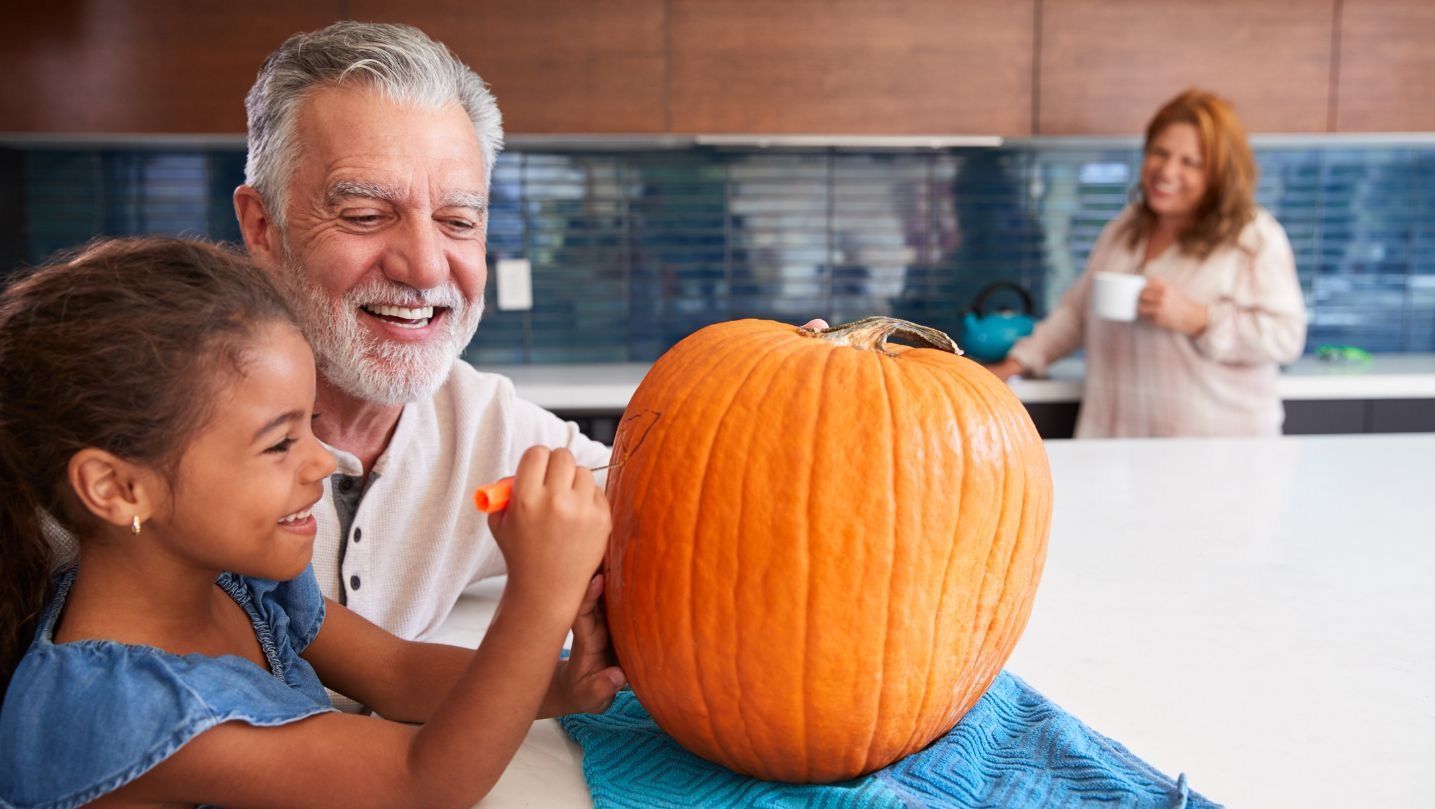How to Celebrate Halloween with Your Aging Parents
Did you know that approximately
70% of Americans celebrate Halloween every year? Sadly, Halloween can be scary for some older adults as they worry about Halloween mischief and greeting trick-or-treaters. Therefore, you may want to ensure they are not alone on Halloween and/or their neighborhood trick-or-treat night(s).
You can even look at Halloween as a great opportunity to have some fun with your elderly parent.
There are plenty of ways to celebrate the holiday safely, but you should always consider your aging parent's physical and mental abilities.
Also, please note that we say "with" your aging parents, not "for" your aging parents. Spending quality time with an aging loved one is the greatest gift you can give them (and yourself), but balancing your other responsibilities and caring for your aging parent can be difficult. If you realize you're spending more time with your aging parent's day-to-day needs, leaving you less quality time to have fun and enjoy their company, it may be time to contact Comforting Home Care by Phoebe. We will share more on that later, let's get to the fun stuff!
5 Ideas to Celebrate Halloween with Your Aging Parents
#1. Instead of carving pumpkins, which can be both messy and dangerous, consider
painting or adorning pumpkins. This can be a fun activity at any age.
#2. Curl up on the couch with a bowl of popcorn and watch one or two not-so-scary movies. Here are a few ideas – some old, some new, all fun:
- E.T. The Extra-Terrestrial
- Bewitched
- Casper
- Hocus Pocus
- Edward Scissorhands
- The Addams Family
- Harry Potter and the Sorcerer's Stone
- The Nightmare Before Christmas
- Beetlejuice
- Twilight
- Ghost Busters
- Practical Magic
- Hotel Transylvania
- It's the Great Pumpkin, Charlie Brown
- Willy Wonka & the Chocolate Factory
#3. Decorate the House for fall and/or Halloween. Put out the pumpkins you painted together, hang a fall wreath on the door, etc. Make it fun, take your queues from your aging parents as to how much to decorate, and make sure it's safe for them – don't block pathways, don't block the light, etc.
#4. Eat healthy Halloween treats together.
You can bring along some treats or make them together. Keep any diet restrictions in mind, and have fun with it. From snack-o’-lantern fruit cups to spooky spider deviled eggs, here are a few ideas from
Prevention.
#5. Enjoy trick-or-treaters. Who doesn't enjoy seeing kids dressed up for Halloween, eager to see what kind of treat they'll receive for their efforts? Truthfully, having strangers in crazy outfits ringing your doorbell every five minutes can be scary or confusing for some aging adults, especially those with dementia. And, of course, exposure to COVID may also be a concern. Therefore, the traditional trick-or-treater route may not be suitable for everyone. Still, you could put a bowl of candy outside your door and encourage your aging parent to watch from the window as families walk by and children in costumes pick their candy. If you determine that any type of trick-or-treating isn't suitable for your aging parent, turn off the front light and put up a sign saying, "Sorry, no more candy."
If your aging parent has dementia, here are some Halloween safety tips for
Alzheimer's Universe.
Flexible Care for Your Aging Parents
When your loved one's everyday needs keep you from spending quality time with them, it's time to find some family-like help you can trust. Comforting Home Care by Phoebe offers various services to fit your needs, from 24-hour care to Alzheimer's and dementia care to hourly services.
Give us a call today at 610-625-5206 to learn more about our in-home care services, or connect with us online.
More From Our Blog
✔︎ Locally owned and operated,
Dedicated to our local community.

Berks County Office
Comforting Home Care by Phoebe
1 Reading Dr
Wernersville, PA 19565
Phone: 610-625-5206
Lehigh Valley Office
Comforting Home Care by Phoebe
1925 W. Turner Street
Allentown, PA 18104
Phone: 610-625-5600
The region's premier home care provider in Berks, Bucks, Lehigh, and Northampton Counties, including Allentown, Bath, Bethlehem, Easton, Emmaus, Fleetwood, Fogelsville, Hamburg, Hellertown, Hereford, Kutztown, Laurys Station, Leesport, Macungie, Mertztown, Mohnton, Nazareth, New Tripoli, Northampton, Oley, Orefield, Quakertown, Reading, Richlandtown, Robesonia, Schnecksville, Shillington, Shoemakersville. Sinking Spring, Temple, Topton, Trexlertown, Wernersville, Whitehall, Womelsdorf, Wyomissing, & Zionsville,
© Copyright 2023 | All Rights Reserved | Comforting Home Care by Phoebe
Website by Power Marketing International











